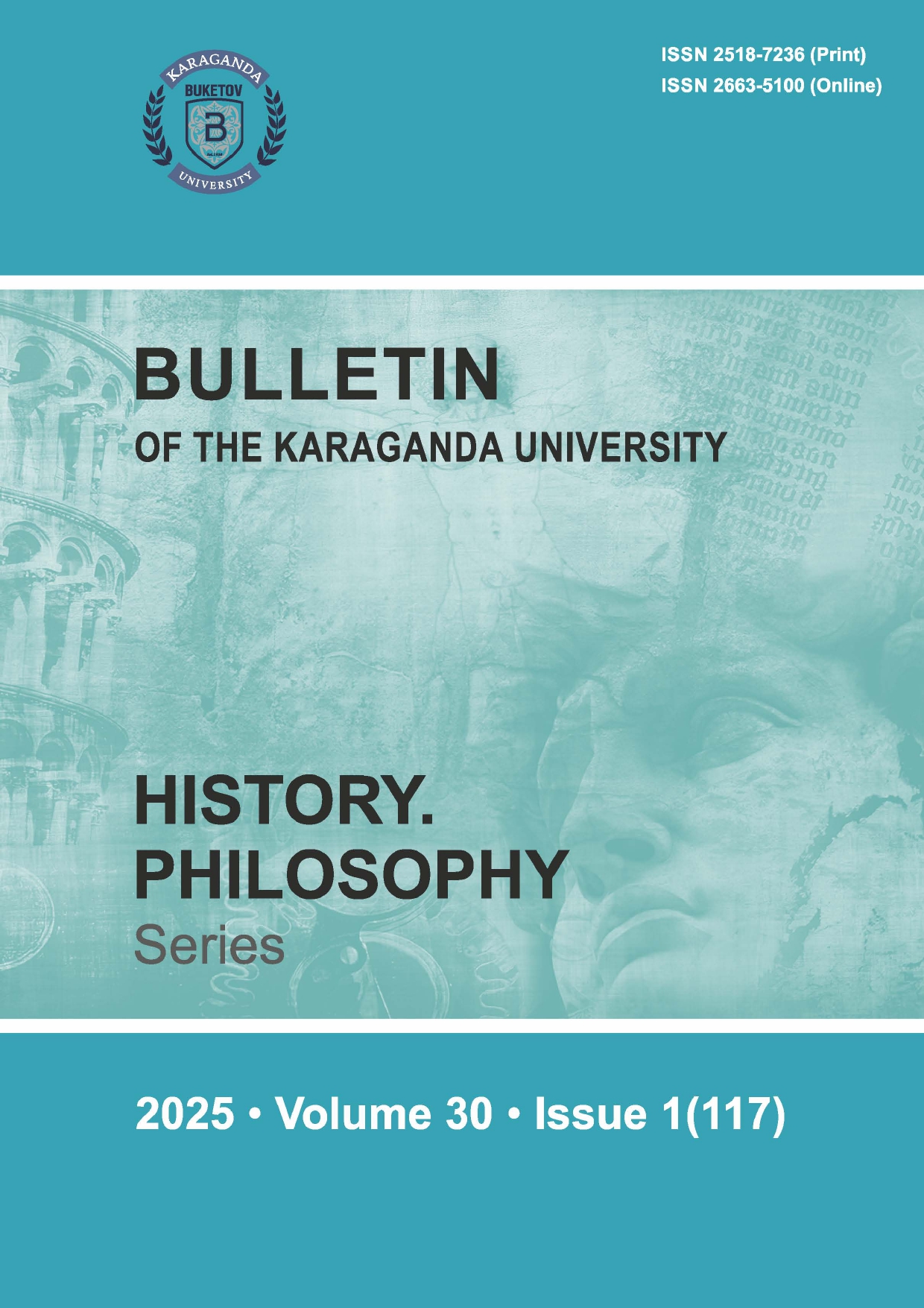Philosophical dimensions of pilgrimage: ziyarat in the context of Central Asian culture
DOI:
https://doi.org/10.31489/2025hph1/382-389Keywords:
pilgrimage, sacred, profane, sacred geography, ontology, epistemology, axiology, ritual, symbol, Central AsiaAbstract
The article is dedicated to the philosophical exploration of the practice of ziyarat, or pilgrimage to holy sites(mazars) in Central Asia. The discussion encompasses the concept of ziyarat as a multifaceted cultural and re-ligious phenomenon that embodies profound philosophical ideas concerning humanity, the cosmos, and thetranscendent. The analysis is grounded in systemic, phenomenological, comparative, historical-cultural, andethnographic methodologies. The article scrutinizes the ontological, epistemological, and axiological dimen-sions of ziyarat, as well as its significance in the development of worldview, value systems, and cultural iden-tities. Furthermore, mazars are examined with regard to their religious, cultural, social, and natural attributes.The authors emphasize the Sufi interpretation of the mazar as a maqam — a locus of spiritual engagementand communion with the saint. Contemporary philosophical perspectives on ziyarat are also considered, par-ticularly in relation to globalization and intercultural dialogue. The article concludes that mazars in CentralAsia and Kazakhstan represent a distinctive phenomenon wherein formidable cultural and social elements co-alesce. These sacred sites of ziyarat serve not solely as expressions of religious obligation, but also as avenuesfor philosophical inquiry into existence, linked to the pursuit of truth and spiritual fulfillment.




